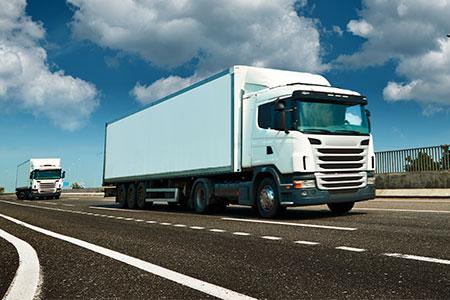Decarbonising Heavy-Duty Road Freight Common Interest Group

This Common Interest Group tackles the challenge of decarbonising heavy-duty road freight. It brings together government-nominated representatives, stakeholders from ITF’s Corporate Partnership Board and additional invitees.
Heavy-duty road freight vehicles are widely used and are responsible for high levels of greenhouse gas emissions (GHGs). Globally, 68% of surface freight (road, rail and inland waterways) is carried by heavy-duty road freight vehicles. These vehicles also account for 73% of GHGs from freight transport. Demand for heavy-duty road freight is widely expected to more than double globally by 2050. Without further policy action, this is expected to lead to increased levels of GHGs.
What we do
The Group aims to pave the way for widespread implementation of policies that will decarbonise heavy-duty road transport. To that end, the Group identifies the most promising technologies and explores which incentives will help their adoption.
How we do it
The Group organises regular meetings to support governments in answering critical questions. One main question is to what extent available evidence suffices to make an informed decision about which technologies offer the highest decarbonisation potential for road freight, and what implications this has for either choosing technology-neutral policies or betting on specific solutions early on. A related questions is that of interdependency: to what extent will specific solutions disadvantage or benefit other options? What are short-term enabling technologies that governments and private actors can invest in without risking regrets? Which are the most resilient solutions? And what differences between countries necessitate different solutions? A report will summarise the Group’s findings and give recommendations with a view to catalysing government actions around specific commitments.
Who participates
The countries participating in the Decarbonising Heavy-Duty Road Freight Common Interest Group are Argentina, Canada, Chile, China, Colombia, Denmark, France, Germany, Hungary, Italy, Japan, Lithuania, Mexico, Netherlands, Norway, Poland, Portugal, Romania, Spain, Sweden, United Kingdom, United States. The European Commission is also a member.
Non-government participants are Scania, ExxonMobil, Bosch, Michelin, Iberdrola, Saudi Aramco, Siemens Mobility, the International Council for Clean Transportation (ICCT), Transport & Environment (T&E), the International Energy Agency (IEA), the International Renewable Energy Agency (IRENA), the US National Renewable Energy Laboratory (NREL), the International Road Union (IRU), the World Road Association (PIARC), the World Business Council for Sustainable Development (WBCSD), the World Economic Forum (WEF) and the Centre for Sustainable Road Freight (CSRF).
The Group is chaired by Herman Sips (Ministry of Infrastructure and Water Management, The Netherlands) and Gustavo Rinaldi (Ministry of Transportation, Argentina). Matteo Craglia (ITF) coordinates the project activities.
Policy insights
- The decarbonisation of road freight has significant momentum among governments and in the private sector.
- Many countries are developing comprehensive frameworks to promote the adoption of zero-emissions vehicles. Some governments are already building upon those frameworks by operating pilot projects at significant scale.
- It will be important to deploy recharging and refuelling infrastructure in the 2020s to reach ambitious decarbonisation targets. Understanding the technical and economic aspects of different options as soon as possible is essential for timely deployment.
- Different technologies suit different use cases. For urban deliveries and other short-distance uses, battery electric vehicles are seen as most likely to be ready for deployment in the short term and lead to significant emissions reductions. For other, more challenging use cases, infrastructure decisions are crucial.
- Uncertainty persists about the technologies best suited to decarbonise long-haul transport. However, a growing consensus sees improving grid infrastructure near main roads and areas of high demand as a “no regret” option. Other “no regret” options include developing modular electrified vehicles that accommodate different technologies and therefore hedge against uncertainty.
- Pilot projects are seen as particularly important to overcome some of the technology uncertainty and understand specific national challenges in the short term.
- Holistic decision-making that involves actors in the energy as well as transport sectors is essential. It also includes developing an understanding of the financial mechanisms and interacting business models.
- International cooperation is crucial to ensure compatibility and mutually reinforcing approaches to decarbonisation of heavy goods road vehicles.
Publication
Decarbonising Trucks in an Uncertain Future: Assessing Ownership Costs in Europe